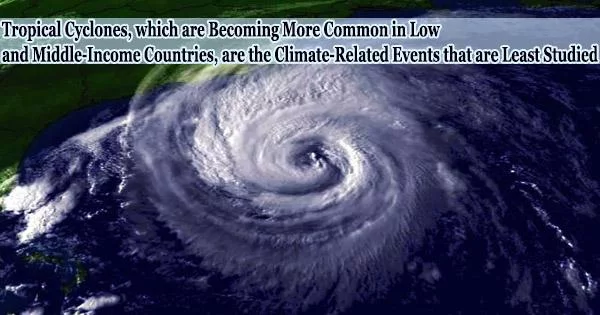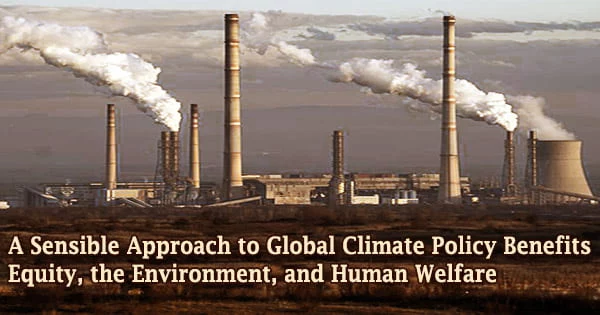Tropical cyclones are becoming more frequent and intense in low and middle-income countries, but they are often the least researched and understood of climate-related events. This is partly due to a lack of resources and infrastructure in these countries, making it more difficult to study and understand the impacts of tropical cyclones. As a result, there is a need for increased investment and focus on understanding and preparing for tropical cyclones in these areas.
An updated invited viewpoint from a research from Columbia University’s Mailman School of Public Health highlights the rise in unfavorable public health outcomes after tropical cyclones, particularly in areas where there are already health issues.
Instead of the United States, the report, which was published in Environmental Health Perspectives, argues that attention should be paid to low and middle-income countries (LMICs). Up until now, the majority of study on the effects of tropical cyclones has concentrated on wealthy nations.
“In order to more fully understand the long-term consequences of tropical cyclones more high-quality public health research on tropical cyclones that focuses on LMICs is essential,” says Robbie M. Parks, PhD, incoming assistant professor of environmental health sciences at Columbia Mailman School. “However, conducting this research calls for a multidisciplinary approach as well as greater cooperation between high income countries and low middle-income countries.”
The effects of tropical cyclones on public health go beyond accidents and cardiovascular diseases and include mental disorders, respiratory illnesses, infectious and parasitic infections, all of which become apparent after major meteorological events.
In order to more fully understand the long-term consequences of tropical cyclones more high-quality public health research on tropical cyclones that focuses on LMICs is essential. However, conducting this research calls for a multidisciplinary approach as well as greater cooperation between high income countries and low middle-income countries.
Robbie M. Parks
Parks and co-author Renzo R. Guinto of St. Luke’s Medical Centre College of Medicine, Philippines, further make the point that long-term mental health consequences are greatly misunderstood and need to be studied in greater detail.
After a tropical cyclone, federal subsidies and private insurance provided to minority and low-income groups are frequently unavailable, making recovery uneven. According to Parks, not everyone has access to resources like money or the luxury of evacuating because there aren’t enough warning systems.
Every time a strong tropical cyclone makes landfall, it is almost too hard to read the news reports; we are all frequently reminded that typhoons and hurricanes are among of the deadliest and most common climate-related hazards there are.
It is far too simple for those of us who are not directly impacted by extreme weather to resume our daily lives as soon as the headlines recede. However, a tropical cyclone’s prolonged shadow can cause serious injury, hospitalization, and even death.
















